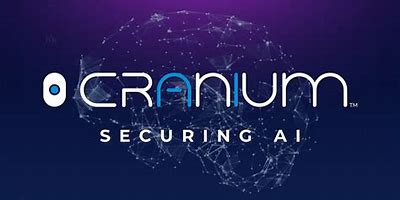
The field of Artificial Intelligence (AI) and Machine Learning (ML) is rapidly evolving, creating a high demand for skilled professionals. Internships offer invaluable opportunities for aspiring AI/ML engineers to gain practical experience and contribute to cutting-edge projects. This article explores the experiences and challenges faced by an AI/ML Engineer Intern, focusing on the metaphorical "cranium" – the mental landscape of learning, problem-solving, and growth within this demanding role. It delves into the technical skills, collaborative dynamics, and personal development that shape the intern's journey, providing insights for both aspiring interns and organizations looking to cultivate the next generation of AI talent. The journey is not merely about coding or building models; it's about developing a critical mindset, adapting to new technologies, and contributing meaningfully to the world of data science. It also involves navigating ethical considerations and understanding the societal impact of AI solutions. The ability to communicate effectively, both verbally and in writing, is crucial for conveying complex ideas and collaborating with diverse teams.
The Daily Grind: Tasks and Responsibilities

An AI/ML Engineer Intern's day can vary greatly depending on the specific project and team. Common tasks include:
Data Collection and Preprocessing: Gathering data from various sources, cleaning it, and preparing it for model training. This often involves writing scripts to automate data cleaning processes and ensure data quality.
Model Development and Training: Experimenting with different algorithms, building and training machine learning models, and evaluating their performance. This requires a strong understanding of statistical concepts and programming skills in languages like Python.
Model Deployment and Monitoring: Deploying trained models to production environments and monitoring their performance over time. This includes setting up infrastructure, configuring APIs, and ensuring model scalability.
Research and Development: Staying up-to-date with the latest advancements in AI and ML, researching new techniques, and implementing them in projects. This requires a continuous learning mindset and the ability to adapt to new technologies quickly.
Collaboration and Communication: Working closely with other engineers, data scientists, and stakeholders to understand requirements, share findings, and contribute to project success. Effective communication skills are essential for conveying complex ideas and receiving feedback.
Navigating the Technical Landscape

The technical skills required for an AI/ML Engineer Intern are constantly evolving. However, some fundamental skills remain crucial:
Programming: Proficiency in Python is essential, along with familiarity with libraries like TensorFlow, PyTorch, and scikit-learn. Understanding data structures and algorithms is also crucial for efficient coding.
Mathematics and Statistics: A solid foundation in linear algebra, calculus, and probability is necessary for understanding the underlying principles of machine learning algorithms.
Data Handling: Experience with databases, data warehousing, and data manipulation tools is important for working with large datasets. Familiarity with SQL and NoSQL databases is often required.
Cloud Computing: Knowledge of cloud platforms like AWS, Azure, or Google Cloud is increasingly important for deploying and scaling AI/ML models.
Version Control: Using Git for version control is essential for collaborating with other developers and managing code changes.
Deep learning: Grasp on CNN's, RNN's, transformers etc, is essential as most of the SOTA methods are built upon these architecture.
The Importance of Mentorship and Guidance

A strong mentorship program can significantly impact an AI/ML Engineer Intern's experience. Mentors provide guidance, support, and feedback, helping interns navigate challenges and accelerate their learning. Effective mentorship includes:
Regular one-on-one meetings to discuss progress, address concerns, and set goals.
Opportunities to shadow senior engineers and learn from their experience.
Constructive feedback on code, models, and presentations.
Introductions to other members of the team and the broader AI/ML community.
Support for professional development, such as attending conferences and workshops.
Having a mentor that is readily available to answer questions is very important in the learning process. The mentor should not just be an advisor but should also be willing to work together to solve problems.
Overcoming Challenges and Learning from Mistakes
No internship is without its challenges. AI/ML Engineer Interns often face obstacles such as:
Debugging complex code: Identifying and fixing errors in code can be time-consuming and frustrating. It's important to develop strong debugging skills and learn how to use debugging tools effectively.
Dealing with noisy data: Real-world data is often incomplete, inconsistent, and contains errors. Learning how to clean and preprocess data effectively is crucial for building accurate models.
Overfitting models: Training models that perform well on training data but poorly on new data is a common problem. Techniques like regularization and cross-validation can help prevent overfitting.
Understanding complex algorithms: The field of AI/ML is constantly evolving, and new algorithms are being developed all the time. It's important to stay up-to-date with the latest advancements and learn how to apply them to projects.
Communicating technical concepts: Explaining complex technical concepts to non-technical stakeholders can be challenging. It's important to develop strong communication skills and learn how to tailor your message to your audience.
AI systems can perpetuate biases present in the data they are trained on, leading to unfair or discriminatory outcomes. Interns must be aware of these potential biases and take steps to mitigate them. This includes carefully examining the data used for training, using techniques to debias models, and ensuring that AI systems are used ethically and responsibly. It also requires understanding and adhering to ethical guidelines and regulations, such as those related to data privacy and algorithmic transparency. Furthermore, data scientists should be cognizant of the impact that their algorithms can have on individuals and society, and should be willing to challenge assumptions and question the status quo. The goal is to promote fairness, accountability, and transparency in the development and deployment of AI systems.
Building a Strong Portfolio
A portfolio is a crucial tool for showcasing an AI/ML Engineer Intern's skills and experience. A strong portfolio should include:
Projects: Showcase completed projects, highlighting the problem solved, the techniques used, and the results achieved. Include code samples, data visualizations, and project reports.
Code Contributions: Contribute to open-source projects on platforms like GitHub. This demonstrates your coding skills and your ability to collaborate with other developers.
Blog Posts: Write blog posts about AI/ML topics, sharing your knowledge and insights with the community. This demonstrates your communication skills and your understanding of the field.
Presentations: Give presentations at meetups or conferences, sharing your work and engaging with other AI/ML professionals. This demonstrates your presentation skills and your ability to communicate complex ideas effectively.
Certifications: Obtain certifications from reputable organizations, demonstrating your knowledge of specific AI/ML technologies.
The Future of AI/ML Engineering: Trends and Opportunities
The field of AI/ML is constantly evolving, with new trends and opportunities emerging all the time. Some key trends to watch include:
Explainable AI (XAI): Developing AI models that are transparent and understandable, allowing users to understand why the model makes certain predictions.
Federated Learning: Training AI models on decentralized data sources, protecting data privacy and security.
Reinforcement Learning: Training AI agents to make decisions in dynamic environments, with applications in robotics, game playing, and finance.
Natural Language Processing (NLP): Developing AI models that can understand and generate human language, with applications in chatbots, machine translation, and text summarization.
Computer Vision: Developing AI models that can analyze and understand images and videos, with applications in object detection, image recognition, and autonomous driving.
By staying up-to-date with these trends and developing the necessary skills, AI/ML Engineer Interns can position themselves for success in this exciting and rapidly growing field. The opportunities for innovation and impact are immense, and the potential to shape the future of technology is within reach. Continuous learning, adaptability, and a passion for problem-solving are essential for navigating the ever-changing landscape of machine learning.
The AI/ML Engineer Intern journey is a challenging but rewarding experience. It requires a combination of technical skills, problem-solving abilities, and a willingness to learn and adapt. By embracing challenges, seeking mentorship, and building a strong portfolio, interns can lay the foundation for a successful career in this dynamic field. The mental landscape, the metaphorical "cranium," expands with each new concept learned, each problem solved, and each contribution made. The future of AI depends on the talents and dedication of these aspiring engineers. They are the innovators, the problem-solvers, and the leaders who will shape the next generation of AI technologies.
Post a Comment for "Cranium's AI/ML Interns: Building the Future, One Neuron at a Time"